The compact SUV market remains one of the most hotly contested spaces in India, and with the arrival of the facelifted Renault Kiger and Nissan Magnite, buyers face a tough decision. Both models share the same Renault-Nissan Alliance platform and a surprising number of components, but approach design, features, pricing, and ownership experience with their own distinct flavour. This comprehensive Renault Kiger vs Nissan Magnite review explores where the two facelifted SUVs overlap and, more importantly, where they stand apart.
Also Read: Renault Kiger Facelift Launched at ₹6.29 Lakh
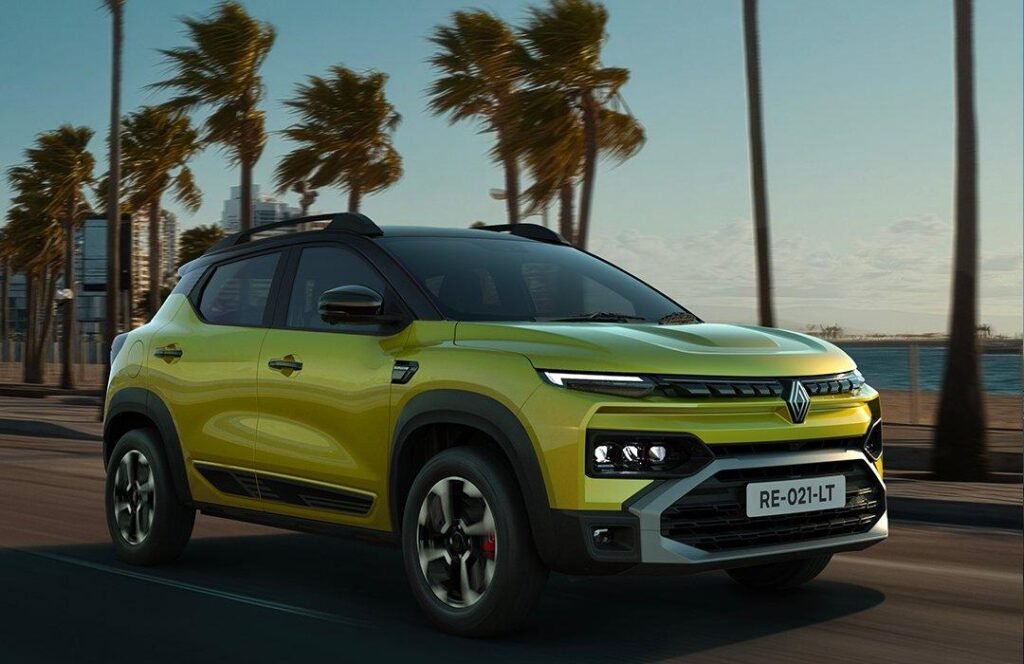
Renault Kiger vs Nissan Magnite: Price & Variants
Price is a major factor as these are among the most budget-friendly compact SUVs on the market.
- Renault Kiger facelift: Starts at ₹6.29 lakh and goes up to ₹11.29 lakh (ex-showroom).
- Nissan Magnite: Starts slightly lower at ₹6.14 lakh, but top trims and automatics approach ₹11.76 lakh (ex-showroom).
- Both offer several trim levels and multiple powertrain options, making them accessible for first-time SUV buyers and urban families alike.
Also Read: Nissan Magnite Review – Features, Performance, Pros & Cons, and Best Value in 2025
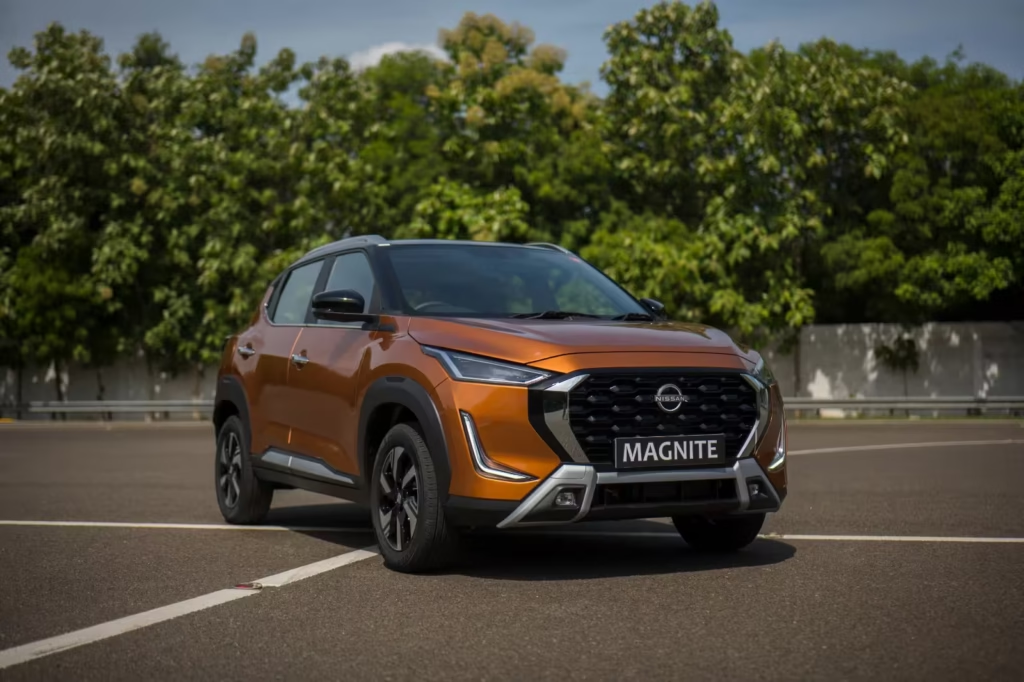
Key Specs & Price
| Parameter | Renault Kiger Facelift | Nissan Magnite |
|---|---|---|
| Price (ex-showroom) | ₹6.29–₹11.29 lakh | ₹6.14–₹11.76 lakh |
| Engine (Petrol) | 999 cc NA / Turbo | 999 cc NA / Turbo |
| Power | 71 bhp (NA) / 99 bhp | 71 bhp (NA) / 99 bhp |
| Torque | 96 Nm (NA) / 152–160 Nm | 96 Nm (NA) / 152–160 Nm |
| Transmission | 5MT, AMT, 5MT, CVT (Turbo) | 5MT, AMT, 5MT, CVT (Turbo) |
| Fuel Efficiency (claimed) | ~19 kpl | Up to 19.4 kpl |
| Safety (Airbags) | 6 airbags (standard) | 6 airbags (standard) |
| Wheelbase | 2,500 mm | 2,500 mm |
| Boot Space | 405 litres | 336 litres |
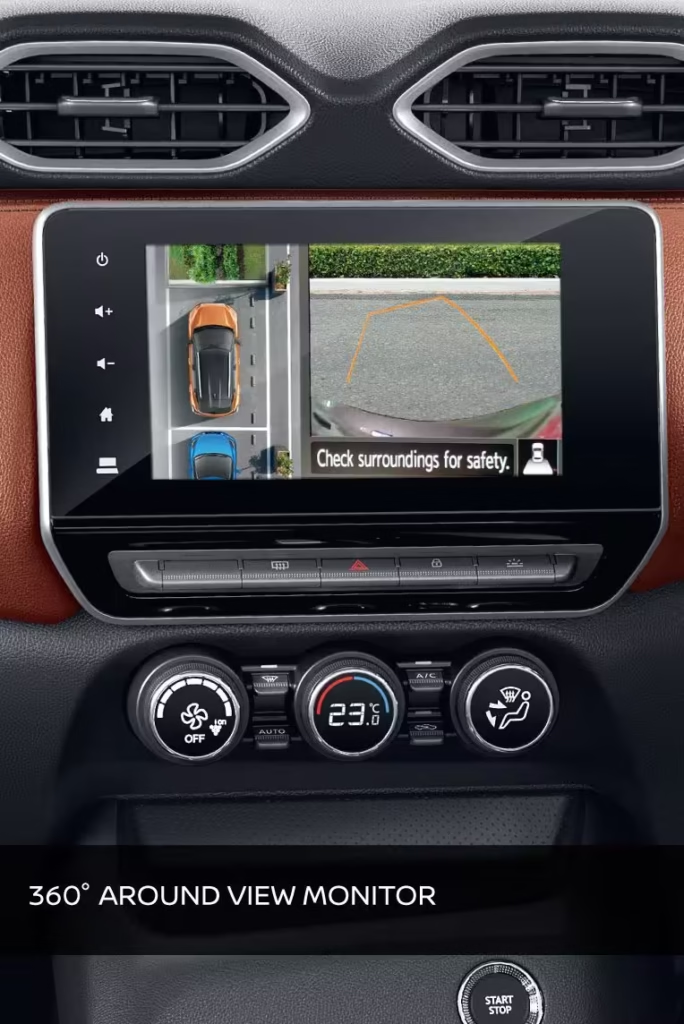
Engines & Performance: Almost Identical, But Tuning Matters
Both SUVs offer a choice between a 1.0-litre naturally aspirated petrol and a 1.0-litre turbo-petrol engine. Manual gearboxes are standard, with AMTs/automatics available:
- Power and torque outputs are virtually identical, but the Kiger’s tuning feels marginally sportier, with a slightly firmer suspension for spirited handling.
- The Magnite focuses on comfort and fuel efficiency, making it well-suited for urban commutes and highway runs alike.
- Owners report that the turbo-CVT setup in both models offers the best of convenience and zest, but premium variants can stretch the budget.
Also Read: 2025 Maruti Escudo – Top Reasons Why It Could Be the Best Budget SUV
Features and Cabin: Kiger Facelift Ups the Game
- Renault Kiger Facelift
- Major update: 6 airbags are now standard across all variants, a best-in-segment safety boost.
- Also gets ESP, hill-start assist, tyre pressure monitoring system as standard.
- Top trims boast ventilated front seats, surround camera, wireless charger, 8-inch touchscreen, LED headlamps, auto headlights/wipers, and more.
- New dashboard styling with dual-tone colours and improved cabin feel.
- Nissan Magnite
- Features include 360-degree camera, wireless Android Auto/Apple CarPlay, ambient lighting, 9-inch touchscreen, JBL speakers, air purifier (w/ Tech Pack), 7-inch MID, and Nissan Connect suite.
- Interior is upright and smart, but material quality and perceived premiumness slightly lags behind the Kiger facelift.
Also Read: Buying a Used Nissan Magnite (2020-2024) – Comprehensive Guide, Reliability, Pricing & What to Check
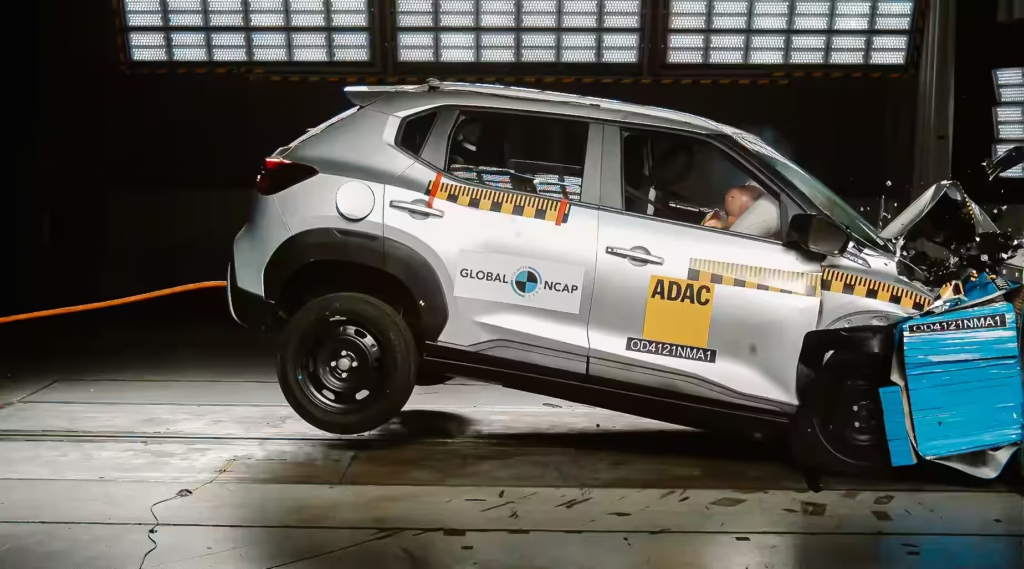
Safety, Ownership & Practicality
- Safety: Kiger’s 6 airbags standard is a game-changer. Magnite counterpunches with strong GNCAP scores (5 stars).
- Space & Boot: Both offer roomy cabins for five, but Magnite has a slightly variable boot (336–690L) with flexible seat folding—useful for cargo-heavy users.
- Running Costs: Real-world fuel efficiency for both cars is impressive (up to 19 kmpl). Service costs are low, spares widely available, and both brands have expanded their dealer reach.
- Warranty & Reliability: Each offers standard warranties and optional extensions; parts and repairs remain cost-effective. Maruti, Hyundai, and Tata still edge slightly ahead in after-sales for some regions.
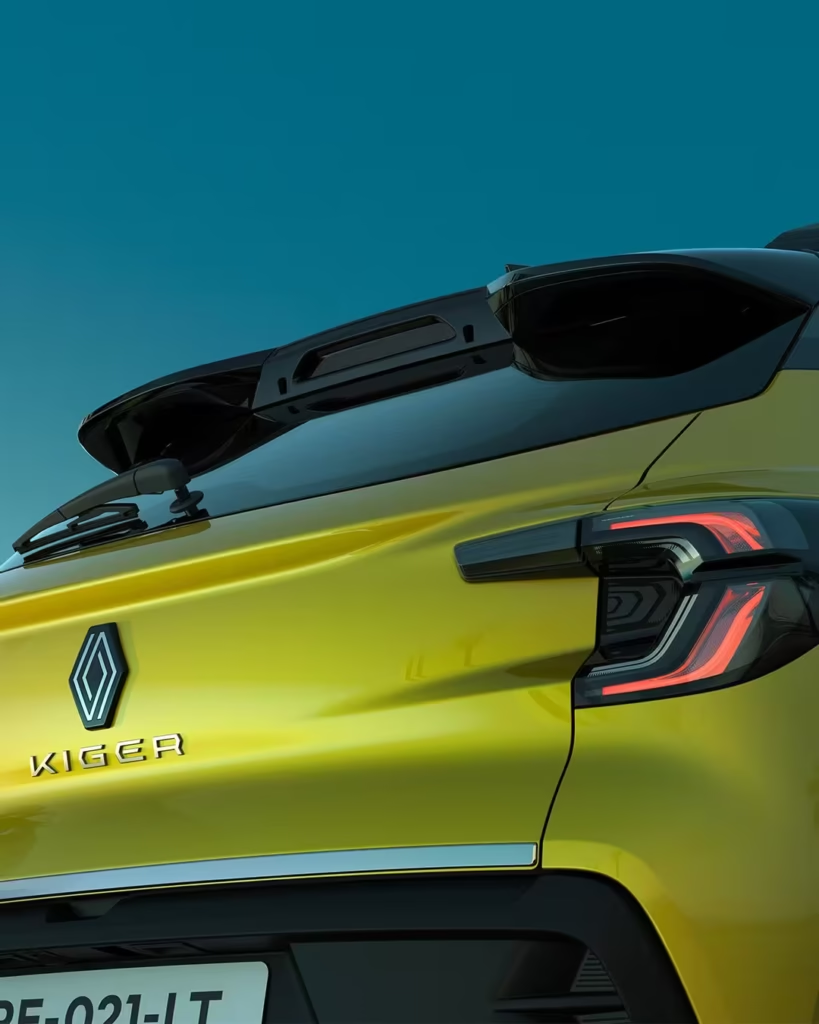
Real-World Experience & Owner Ratings
- Both cars score highly on value for money, comfort, and exterior appeal.
- The Kiger edges out slightly in features and safety, while the Magnite boasts an outstanding turbo-petrol powertrain and strong real-world economy.
- Owners of both report satisfaction with highway stability, AC effectiveness, and digital-to-drive feel.
Conclusion: Renault Kiger vs Nissan Magnite—Which is Better?
The Renault Kiger vs Nissan Magnite battle comes down to priorities. If you want a slightly better and updated cabin, a little more sporty flair, the Kiger facelift is the one to shortlist. If real-world economy, proven comfort, and a slightly sharper price are priorities, the Magnite is a superb choice. Both score nearly equally in value and driveability—meaning buyers can’t go wrong with either, but must decide based on their specific needs for features, budget, and everyday practicality.
